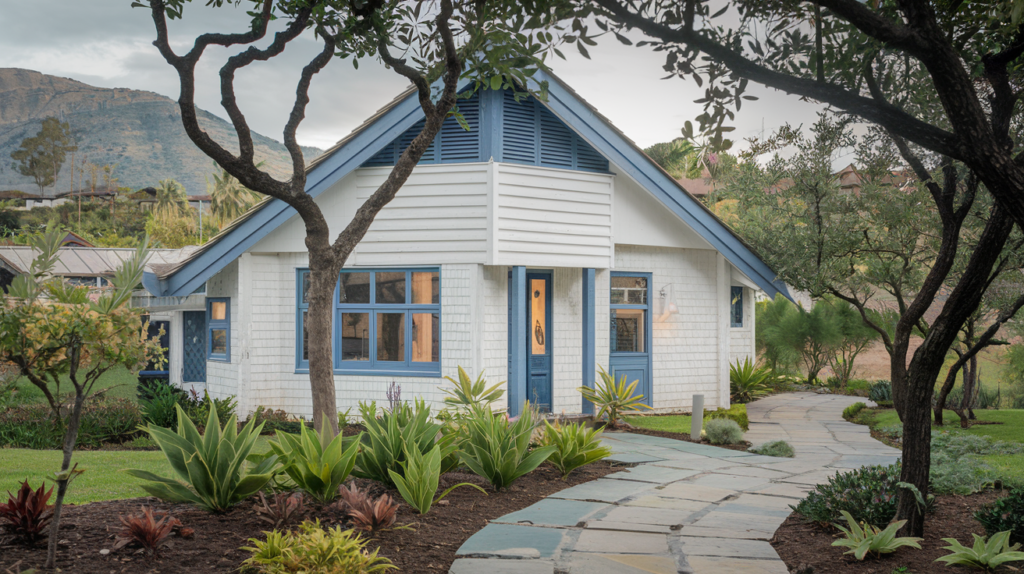Let’s cut to the chase: Los Angeles, California, is expensive. Like, “Did that one-bedroom bungalow just list for $1.2 million, or did I accidentally click on a listing for a private island?” expensive. If you’ve ever browsed Zillow here, you’ve probably felt your soul leave your body for a split second. I know I did when I first moved here. But here’s the kicker—not everyone in LA is scrambling to buy a home. In fact, renting is often the smarter play. Why? Grab your oat milk latte, friend. Let’s break it down.
Reason #1: Financial Flexibility (Because Money Doesn’t Grow on Palm Trees)
Let’s start with the obvious: buying a home in Los Angeles requires a small fortune. The median home price here hovers around **1million∗∗,which means you’d need a down payment of at least 1million∗∗,which means you’d need a down payment of at least 200,000. Ever tried saving 200k while paying 200k while paying 3,000/month in rent? Yeah, it’s like trying to fill a bathtub with a teaspoon.
Renting = Fewer Upfront Costs
- No down payment: Landlords typically ask for first month’s rent plus a security deposit (usually 1–2 months’ rent). For a 3,000/month apartment, that’s3,000/month apartment, that’s 6,000–9,000 upfront versus 9,000 upfront versus 200,000+ for a down payment.
- No closing costs: Buying a home in LA adds another 20,000–20,000–30,000 in fees for inspections, appraisals, and title insurance. Renters skip this entirely.
- Predictable monthly bills: While rent might sting, you won’t get blindsided by a $15,000 roof repair or surprise property tax hikes.
The Investment Myth
“But isn’t buying a better long-term investment?” In my opinion, not always. Historically, the stock market outperforms Los Angeles real estate over 30-year periods. For example, the S&P 500 averages 10% annual returns, while LA home values grow at 5–7% annually. Renting frees up cash to invest in stocks, bonds, or even a side hustle. Plus, you’re not stuck paying interest on a 30-year mortgage—a 1million loan at 71 million loan at 71.4 million in interest alone.
Home equity sounds great, but it’s illiquid. You can’t sell a bathroom to cover an emergency, and tapping into home equity lines of credit (HELOCs) ties you to debt. Meanwhile, LA’s slow housing market means selling a home could take 6–12 months, especially if home values dip. Renters? They just pack a U-Haul and bounce.
Reason #2: Lifestyle Perks (Because You’re Here for the Vibes, Right?)
Los Angeles is a city of neighborhoods, each with its own personality—Venice Beach’s bohemian vibe, Silver Lake’s hipster cafes, Beverly Hills’ glitz. Renting lets you test-drive neighborhoods without commitment, aligning with ever-changing lifestyle preferences or housing needs.
Job Mobility & Easy Relocation
LA’s job market is as dynamic as its real estate market. Tech startups in Playa Vista, film studios in Burbank, corporate gigs in Downtown LA—opportunities shift fast. Renting means you can:
- Follow job opportunities without the stress of selling a home.
- Ditch brutal commutes if your office relocates (RIP to anyone who bought a home in the Valley before their job moved to Culver City).
- Live closer to work—because life’s too short to spend it on the 405.
Pro tip: Short-term rental agreements (6–12 months) or month-to-month leases offer flexibility, while long-term rentals in stabilized buildings lock in rates.
Amenities Without the Hassle
Want a pool, gym, or rooftop lounge? Many LA rental properties, especially condos and luxury apartments, include amenities that would cost a fortune to install in a house. For example, building a pool in LA costs 50,000–50,000–100,000—plus ongoing maintenance. Renters? They borrow the building’s pool and let property management handle the rest.
Even basic perks like trash pickup, landscaping, and security are included in most rental costs. Homeowners, on the other hand, pay out of pocket for these services or spend weekends mowing lawns.
Reason #3: Dodging the “LA Market Roulette”
The Los Angeles real estate market is notoriously volatile. Home prices swing based on everything from celebrity purchases to wildfire risks. Renting shields you from market crashes, rising interest rates, and the stress of timing your purchase “perfectly.”
Repairs? Not Your Problem
Homeownership in LA means facing home repairs like earthquake retrofitting (10,000–10,000–30,000), plumbing disasters, or replacing a 30-year-old HVAC system (5,000–5,000–12,000). Renters, though? They call the landlord and relax.
Hidden Costs of Property Ownership
- HOA fees: Common in LA condos and planned communities, these range from 500–500–1,000/month for amenities you might not even use.
- Homeowner’s insurance: A must in earthquake-prone LA, costing 1,500–1,500–3,000/year. Renters’ insurance? Just 15–15–30/month.
- Property taxes: California’s Prop 13 caps annual increases, but you’ll still pay 1.25% of the purchase price yearly. For a 1millionhome,that’s1millionhome,that’s12,500/year—forever.
Renting often comes with lower annual costs because landlords absorb these expenses. While potential rent increases exist, LA’s Rent Stabilization Ordinance (RSO) caps increases at 5–10% annually in older buildings.
Reason #4: Freedom to Bail (No Guilt Trips Allowed)
LA isn’t for everyone. Maybe you’ll tire of the traffic, wildfires, or that guy who does yoga on top of his car during rush hour. Renting lets you leave without the drama of selling a home.
Minimal Responsibility
Homeownership means weekends spent unclogging gutters or Googling “how to fix a leaky dishwasher.” Renters? They’re at the beach, enjoying LA’s lifestyle without the chores.
Testing the Waters for a Future Home
Not sure if you’re ready to commit to LA? Rent first! Try a condo in Santa Monica, a bungalow in Los Feliz with a home office, or a high-rise with skyline views. Potential buyers can explore living spaces without the pressure of property prices.
Reason #5: The Math Just Makes Sense (Sometimes)
Let’s crunch numbers. The average monthly mortgage payment for a 1 million home in LA is ∗∗6,000+** (including 7% interest, taxes, and insurance). The average monthly rent? Around 3,200. Even with ∗∗potential rent increases that’s a 2,800/month difference—money you could invest elsewhere.
Affordability vs. Building Equity
Sure, buyers build equity over time, but renters avoid:
- Interest payments: A 800,000 mortgage at 71.4 million in interest over 30 years.
- Home repair costs: 1–4% of the home’s value annually (10,000–10,000–40,000 for a $1 million home).
- Limited relocation flexibility: Selling a home in a slow market can trap you in a job or city you hate.
Hot take: If you invest the $2,800/month savings from renting, you could outpace home values appreciation. The S&P 500’s 10% average return beats LA’s 5–7% home price growth.
Navigating the Los Angeles Rental Market
Know Your Rental Agreement
- Rent control: Applies to buildings built before 1978, capping annual rental increases at 5% + local inflation (currently 8.8% max in 2024).
- Security deposits: Limited to 2x rent for unfurnished units under California law.
- Pet policies: Many landlords charge extra fees but offer flexibility for furry friends.
Watch Out For…
- Short-term rentals: Airbnb stays under 30 days are illegal in many LA neighborhoods, risking fines or eviction.
- Rental scams: Always tour the unit in person. If a “landlord” asks for a deposit via Venmo from abroad? Red flag.
The Bottom Line: Renting Lets You Live LA on Your Terms
Look, buying a home in Los Angeles isn’t a bad idea—if you’ve got the cash, stability, and patience for property ownership. But for most people, renting is the pragmatic choice. You get to:
- Save money for trips, investments, or that artisanal kombucha habit.
- Stay agile in a city that’s always changing.
- Avoid adulting on hard mode (property taxes, anyone?).
So next time someone says, “You’re throwing money away on rent!” smile and say, “Nah, I’m investing in flexibility.” Then go enjoy your raccoon-free, maintenance-light, avocado-toast-funded life.
Still dreaming of a backyard? Hey, no judgment. But maybe rent a place with a community garden first. 😉
P.S. If you do buy? Godspeed. Just don’t forget the homeowner’s insurance—and maybe a raccoon trap.







